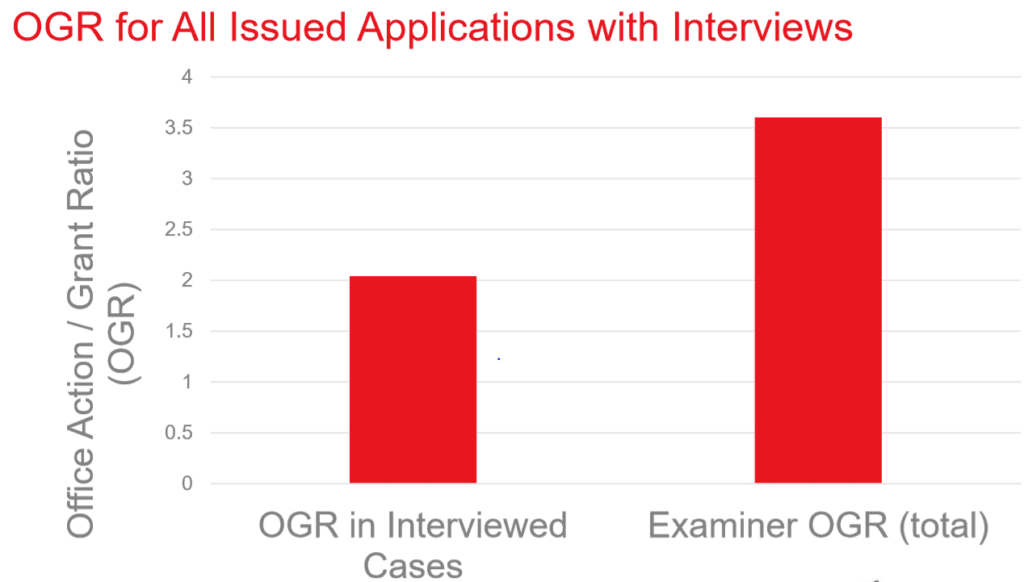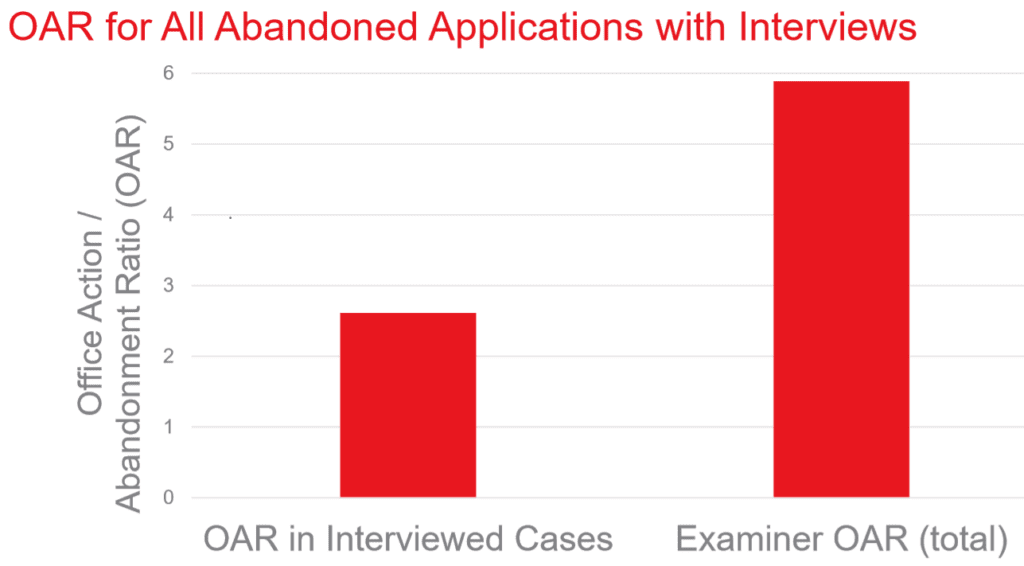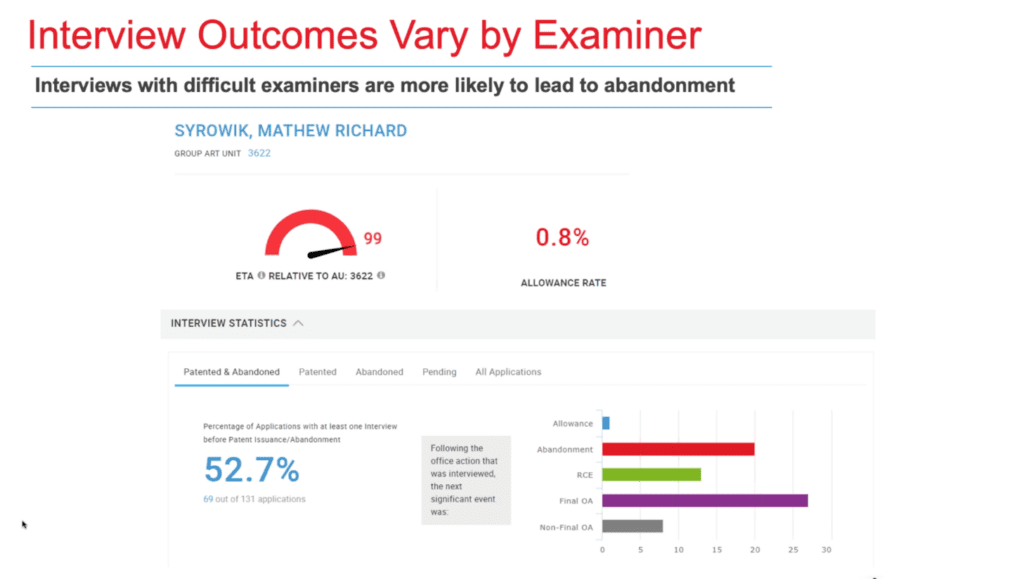The Impact of Examiner Interviews on Patent Prosecution Outcomes

The value of holding USPTO examinter interviews with USPTO is often overlooked by patent professionals. When approached with a mindset of cooperativeness (as opposed to combativeness), examiner interviews enable more effective communication between patent practitioners and examiners. When drafting written correspondence, both patent attorneys and patent examiners tend to rely on the use of boilerplate responses, and their written arguments are often misunderstood. Phone or in-person interviews add a layer of understanding to the process and introduce a human element that can set the tone for patent prosecution going forward.
Dr. Shine (Sean) Tu, Professor of Law at the West Virginia University College of Law, analyzed the approximately 1.2M USPTO applications where interviews where conducted and then looked at the number of office actions until allowance. Our team of experts looks at the data developed by Dr. Tu that supports conducting interviews with patent examiners. Here are three of the most important takeaways for patent professionals and patent applicants to understand about USPTO examiner interviews.
Patent examiner interviews can change prosecution outcomes
Interviews with patent examiners can do more than just clarify small points of contention between examiner and applicant. There are countless examples in the USPTO patent archives that show that patent examiner interviews can completely change the way patent examiners perceive claimed inventions and their patentability. In our webinar, Dr. Tu compared two USPTO-granted patents that were managed by the same prosecuting attorneys, assigned to the same patent examiner in the same technology center, and received the same rejection types. The main difference between the two patents is that one patent made use of an examiner interview while the other did not; the patent with the interview spent 1.5 fewer years in the patent process and issued after needing to overcome four fewer office actions. Patent data shows that examiner interviews can have profound impacts on patent prosecution outcomes, which are usually in the favor of patent applicants.
Quicker dissolutions follow patent examiner interviews
When we look at USPTO patent data, we see that patent interviews lead to quicker dissolutions regardless of whether a patent is granted or not. When comparing issued patent applications that included patent interviews to those that did not, the interviewed cases averaged around 1.75 fewer office actions before being granted. Dr. Tu introduced a new metric to demonstrate this: Office Action per Grant Ratio (OGR) = Total Number of Office Actions / Total Number of Grants. This chart compares the applications allowed with interviews compared to the applications allowed without an interview for the same group of patent examiners.

Maybe more important than the grants are the abandonments. Patent applications that were ultimately rejected were resolved with around 3.3 fewer office actions when a patent examiner interview was held. Dr. Tu introduced a new metric to demonstrate this: Office Action per Abandonment Ratio (OAR) = Total Number of Office Actions / Total Number of Abandonments.

Patent prosecution data even shows that USPTO patent examiners, who themselves are incentivized to work efficiently to resolve cases, invested around 17 more hours per year on interviews in 2019 than in 2008 because of the effect they have on shortening prosecution times.
Interviews are worth the upfront costs, usually
There is plenty of data supporting the case for holding interviews with USPTO patent examiners. Interviews, which commonly take no more than minutes to conduct, can reduce prosecution times and the number of office actions applicants are likely to face. With each office action response costing an average of $3,000 to patent applicants, the value of interviewing with a patent examiner is usually worth the upfront cost. That being said, while the general rule favors examiner interviews, it is important to note that interviews with difficult examiners are more likely to lead to abandonment. Patent prosecution analytic platforms like LexisNexis PatentAdvisor® allow users to easily understand the relative difficulties of their assigned patent examiners and provide patent examiner–specific interview statistics that help users decide whether conducting an interview is the right decision.

Examiner interviews can have significant impacts on how patent prosecution is decided, how long it takes and how much it costs. Patent data suggests that examiner interviews are commonly beneficial and well worth the investment. To help ensure that holding an interview with your assigned patent examiner will lead to favorable results, PatentAdvisor™ provides patent examiner data and statistics that allow users to take action with confidence.
See how Patent Prosecution Analytics: No Longer Just a Nice to Have and watch the on-demand webinar.
Learn more about PatentAdvisor and PatentAdvisor ETA.
